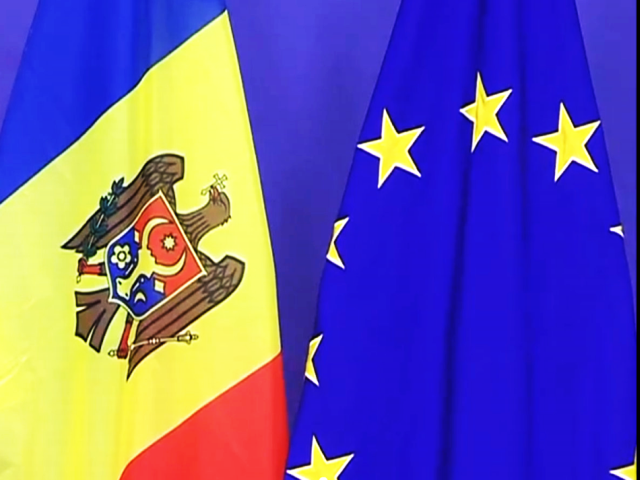Moldovan citizens, one step closer to the EU
As of late April, the citizens of the Republic of Moldova who own biometric passports can travel to the Schengen area without a visa. The official document confirming the elimination of these visas, as of April 28th, was signed in Brussels on Thursday. Apart from free movement, the measure grants Moldovan citizens the right to stay in the Schengen area for three months. The EU Home Affairs Commissioner, Cecilia Malmström, has said, shortly after the signing of the document, that the liberalisation of the visa regime marks a new chapter in the history of relations between Chisinau and Brussels.

Valentin Țigău, 04.04.2014, 13:58
As of late April, the citizens of the Republic of Moldova who own biometric passports can travel to the Schengen area without a visa. The official document confirming the elimination of these visas, as of April 28th, was signed in Brussels on Thursday. Apart from free movement, the measure grants Moldovan citizens the right to stay in the Schengen area for three months. The EU Home Affairs Commissioner, Cecilia Malmström, has said, shortly after the signing of the document, that the liberalisation of the visa regime marks a new chapter in the history of relations between Chisinau and Brussels.
She has underlined the efforts made by the Moldovan authorities, who, in her opinion, set an excellent example for other countries in the region. The European Commissioner believes that Moldovan authorities have thus shown their strong political commitment to and the actual implementation of a series of reforms, which bear fruit. In November 2013, the Republic of Moldova initialled the EU Association Agreement and is due to sign this document in June 2014. The Moldovan Foreign Affairs and European Integration Ministry has hailed the signing of the European decision on lifting visas for Moldova.
This success is the coronation of a 4-year process. During this period, Romania proved to be Moldova’s main advocate, militating for the European integration of the former Romanian province of Bessarabia. It became a Soviet republic following its annexation by the USSR and declared its independence in 1991. Moldova and Romania share the same language, Romanian, which is spoken by most people living in the two countries. “The European project is of utmost importance for the Republic of Moldova”, Romanian Foreign Minister Titus Corlatean has recently said, “and this can be achieved mainly through the efforts made by the pro-European government at domestic level; we have a duty to support them, without getting involved in their domestic policy, to continue to have a pro-European partner in Chisinau, after the parliamentary elections, due in late November 2014 in the Republic of Moldova”.
“Moldovans get freer EU access after Ukraine crisis”, the Wall Street Journal writes. The regulations have been changed in an effort to boost relations with a country, which, just like Ukraine, is situated in Russia’s vicinity. EU leaders are concerned about the fact that the Republic of Moldova will be subjected to increasing pressure by Moscow, once it gets closer to signing an association agreement with the EU, the aforementioned US publication also writes.






























